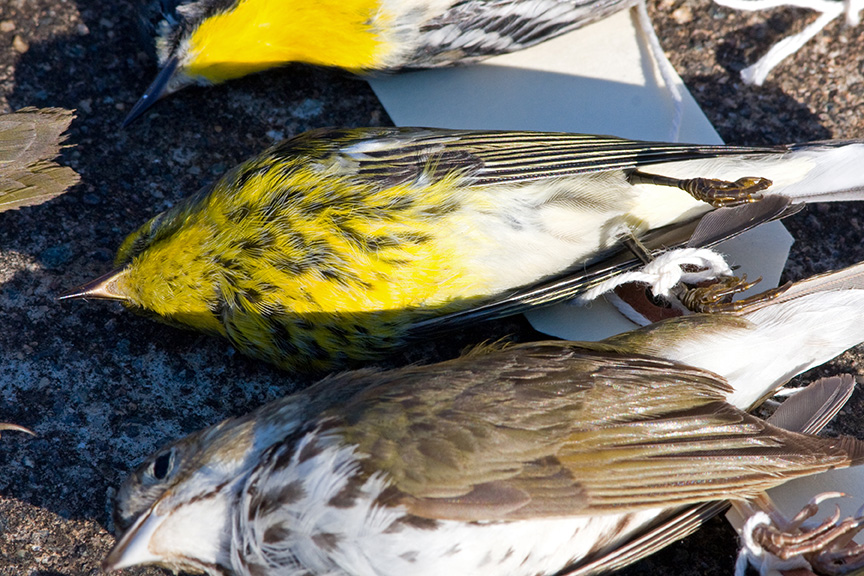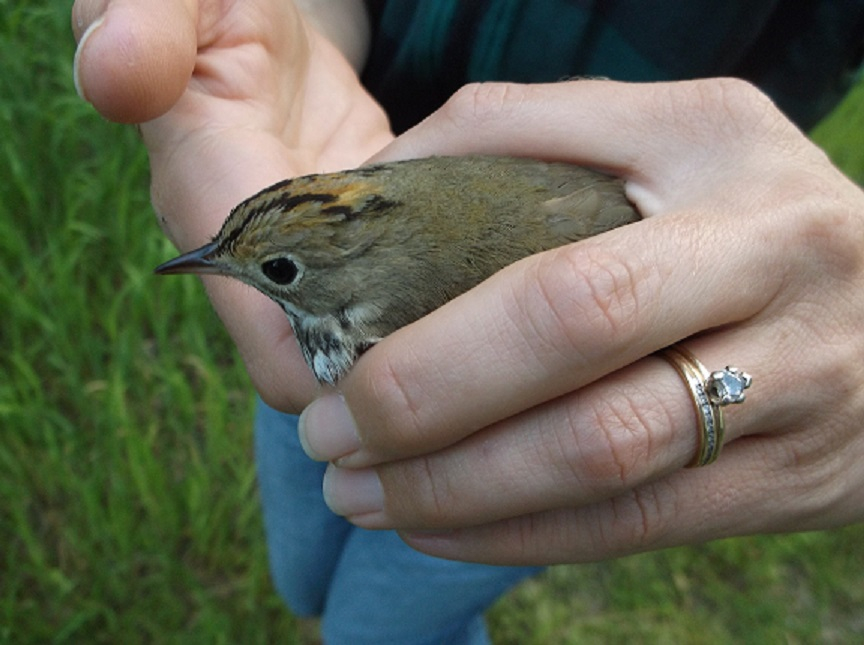Lights Out

Every spring and fall, millions of birds journey along the Atlantic Flyway north to breeding grounds and back south to their winter homes. For millions of years, the moon and stars have helped them find their way. For just 100 years, artificial light, especially from cities, has steered them off course.
Chicago and New York have led the way in darkening their night skies for migrating birds. Our city is taking action with Lights Out Winston-Salem, started by Forsyth Audubon and Audubon North Carolina in spring 2012. So far seven buildings have signed on to participate by turning off nonessential exterior and interior lighting after 11 p.m. during spring and fall migration. Much thanks to: 500 West Fifth Street, BB&T, Liberty Plaza, Reynolds American, The Cardinal Hotel, Wells Fargo, Winston Tower.
Turn out the lights and give the more than 150 species of birds that pass through Winston-Salem the dark skies they need for safe flight. In doing so, you will save money and reduce our city’s use of fossil fuels. And we will all see more stars. Bird-friendly skies are friendlier for people, too. The fall lights out period is September 10-November 30. The spring lights out period is March 15-May 31. Track migration here.
The problem:
Most birds migrate at night. Artificial lights attract and disorient birds, leading to collisions with buildings. Collisions kill anywhere from 100 million to 1 billion birds a year in the United States. Experts say that building collisions are second only to habitat destruction in human-related causes of bird mortality. This problem is not limited to large cities: during morning surveys of 13 downtown Winston-Salem buildings, Audubon volunteers found 50 dead and injured birds in a single month during fall 2011.

Most collision victims are migratory birds – warblers, thrushes and vireos – beloved for their bright colors and beautiful songs. Many of these species already are in serious decline. Locally, fewer than ten percent of birds that collided with buildings were year-round residents such as Northern Cardinals and Eastern Towhees.
Become part of the solution:
Research in Chicago documented an 83-percent reduction in bird collisions when the lights were turned out. Not only will there be fewer collisons at a darkened building, but also the urban glow that attracts birds in the first place will diminish.
Turn out the lights when you leave your office for the day, and ask your employer to turn out the lights during spring and fall migration.
If you are a building owner of manager, join your neighbors listed above and participate in Lights Out Winston-Salem. Click on this link for a letter in .pdf format: Invitation to building owners/managers.

Click this link for Forsyth Audubon’s Lights Out brochure in .pdf format: Lights Out brochure
Learn what you can do at home to keep birds from rehitting your windows:
Learn more about bird-building collisions:
Facts about bird-building collisions
Avian mortality at windows: the second largest human source of bird mortality on Earth:
- U.S. Fish & Wildlife Service
- Fatal Light Awareness Program
- National Audubon Society
- New York City Audubon
- American Bird Conservancy
Volunteer to monitor downtown buildings for injured/dead birds during migration: Contact [email protected] for more information.
Our Winston-Salem Lights Out program was featured in Yes, Weekly’s “Window Pain.”
For architects and designers
Learn more about bird-friendly building design in this comprehensive report from the American Bird Conservancy.
Learn more about LEED Pilot Credit.